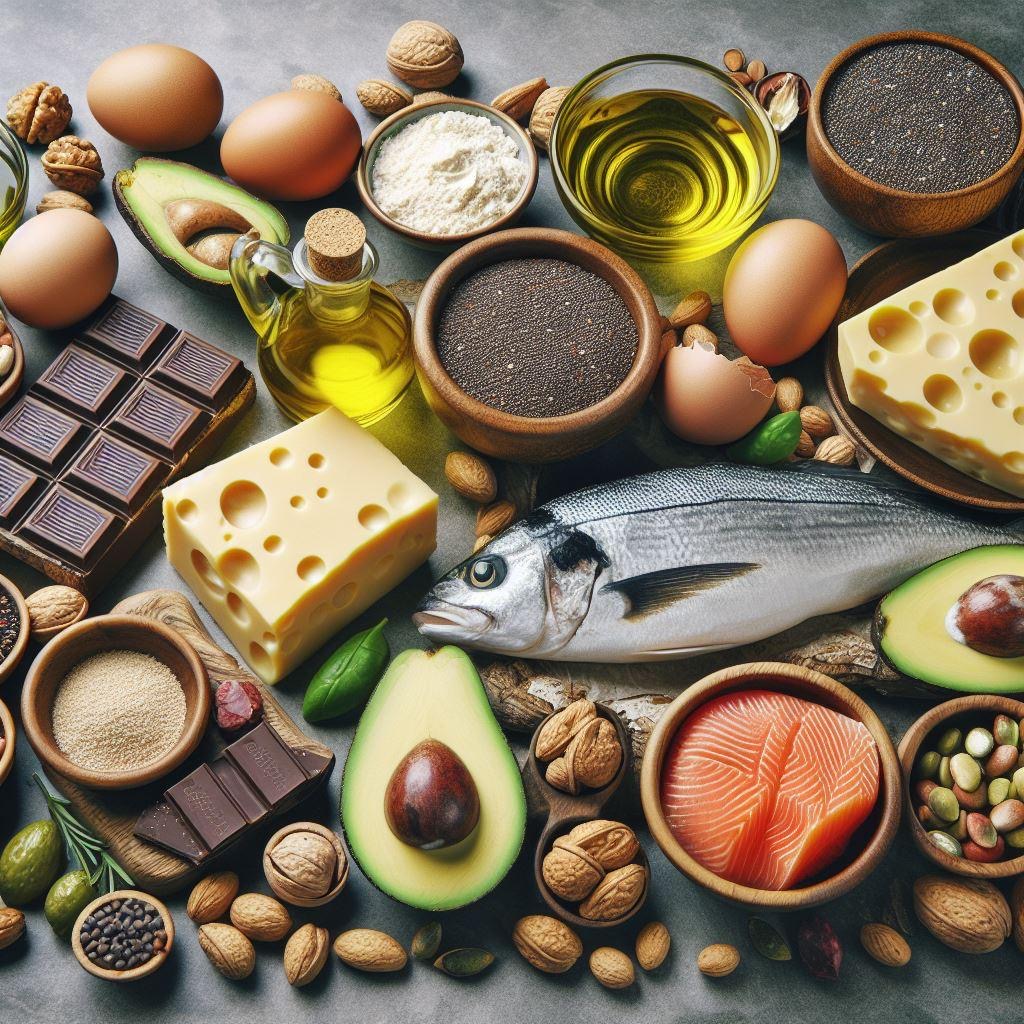Your cart is currently empty!

Debunking the Myth: Is Fat in Food Really the Enemy?
When it comes to nutrition, few topics have been as controversial and misunderstood as dietary fats. For decades, fats have been vilified as the primary culprit behind various health issues, from heart disease to obesity. But is fat really the enemy that it’s made out to be? Let’s separate fact from fiction.
The Good, the Bad, and the Essential:
Not all fats are created equal. While some fats can indeed be harmful when consumed in excess, others are essential for optimal health. Here’s a breakdown:
The Bad:
- Trans Fats: Artificial trans fats, found in many processed and fried foods, are unequivocally harmful. They raise bad cholesterol levels (LDL) while lowering good cholesterol (HDL), increasing the risk of heart disease and stroke. Avoiding trans fats is crucial for heart health.
- Saturated Fats: While saturated fats have been demonized in the past, research has shown that their impact on health is more nuanced. While excessive consumption of saturated fats can raise cholesterol levels and increase the risk of heart disease, not all saturated fats are created equal. Those from sources like red meat and full-fat dairy should be consumed in moderation.
The Good:
- Unsaturated Fats: Monounsaturated and polyunsaturated fats, found in foods like avocados, nuts, seeds, and fatty fish, are considered beneficial for health. They can help improve cholesterol levels, reduce inflammation, and support overall heart health.
The Role of Essential Fatty Acids:
Some fats are essential for the body’s proper functioning, meaning they cannot be produced by the body and must be obtained from the diet. Omega-3 and omega-6 fatty acids are two such essential fats. Sources rich in omega-3s, such as fatty fish, flaxseeds, and walnuts, have been linked to numerous health benefits, including reduced inflammation and improved heart health.
Finding Balance:
Rather than demonizing or avoiding fats altogether, the key to a healthy diet lies in balance and moderation. Instead of fearing fats, focus on making healthier choices by incorporating more sources of unsaturated fats into your diet while reducing consumption of harmful fats.
Foods that have healthy fats:
Healthy fats are essential for overall health and well-being. They provide energy, support brain function, and help absorb fat-soluble vitamins. Here are some foods rich in healthy fats:

- Avocados: Avocados are about 80% fat, making them even higher in fat than most animal foods. They’re a great source of potassium, antioxidants, and fiber²³.
- Cheese: Despite its reputation, cheese is surprisingly nutritious. It’s rich in calcium, vitamin B12, and protein. Cheese doesn’t appear to increase heart disease risk compared to reduced-fat dairy².
- Dark Chocolate: Opt for dark chocolate with at least 70% cocoa. It contains antioxidants, iron, magnesium, and flavonoids. However, enjoy it in moderation due to its saturated fat and added sugar content².
- Whole Eggs: Contrary to previous beliefs, eggs are now considered healthy. The cholesterol in eggs doesn’t negatively affect blood cholesterol levels for most people. Eggs are a great source of protein².
- Fatty Fish: Fish like salmon, mackerel, and sardines are rich in unsaturated and omega-3 fatty acids, which benefit heart and brain health. Aim for 2 servings of fatty fish per week³.
- Chia Seeds: These tiny seeds are packed with omega-3 fatty acids, antioxidants, fiber, protein, iron, and calcium. They may also help lower blood pressure in people with type 2 diabetes³.
- Olive Oil: Extra virgin olive oil is a heart-healthy choice. It’s rich in monounsaturated fats and antioxidants².
- Nuts: Nuts like almonds, walnuts, and cashews are crunchy and diverse sources of healthy fats. They’re also packed with vitamins, minerals, and fiber².
- Nut and Seed Butter: Spreadable and satisfying, nut and seed butters (like almond butter or tahini) provide healthy fats and protein².
- Olives: Olives, a staple in the Mediterranean diet, offer monounsaturated fats and antioxidants².
Including these foods in your diet can promote overall health and well-being. Remember that while fats are beneficial, moderation is key, especially for saturated fats²³. 🥑🐟🍫
Conclusion:
The notion that all fats are inherently bad for health is outdated and oversimplified. While certain fats, like trans fats and excessive saturated fats, should be minimized, others, such as unsaturated fats and essential fatty acids, are essential for optimal health. By understanding the role of fats in the diet and making informed choices, you can enjoy a balanced and nutritious diet that supports overall well-being.
Source: Some information is gathered from a conversation with Bing, 11/05/2024
(1) 9 High Fat Foods That Are Actually Super Healthy. https://www.healthline.com/nutrition/10-super-healthy-high-fat-foods.
(2) 12 Healthy High Fat Foods – Medical News Today. https://www.medicalnewstoday.com/articles/322295.
(3) Healthy fat foods. https://bing.com/search?q=foods+with+healthy+fats.
(4) Choosing Healthy Fats: A Guide to Types, 11 Food Tips, and More. https://www.healthline.com/health/food-nutrition/healthy-fats-guidelines.
(5) Fats explained – types of fat – BHF – British Heart Foundation. https://www.bhf.org.uk/informationsupport/support/healthy-living/healthy-eating/fats-explained.
(6) en.wikipedia.org. https://en.wikipedia.org/wiki/Fats
Discover more from The Truth About Food
Subscribe to get the latest posts sent to your email.

